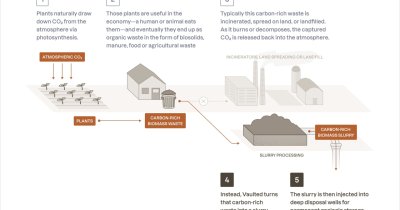We talked about grape-skin shoes in the past, so how about we switch it up for bananas? Not banana-made shoes, but rather bags made from banana stems. This is the mission of Banofi Leather, an India-based startup that believes its solution will make you "go bananas" and for a good reason.
Banofi Leather is the creation of Jinali Mody, who wanted "to break free from the status quo and make way for revolution", after she won one of the largest student entrepreneurship competitions in the world, the Hult Prize 2023. Banofi's solution won the competition in which around 10.000 startups participated.
"Our proprietary material, Ban-o-Fi (Banana Fibre Leather), has a significantly lower environmental impact than both animal and plastic leather. We continue to innovate and reduce our dependence on polymers", the company states on its website.
Lab-grown diamonds are the future of jewelry
A more common product in the jewelry industry, lab-grown diamonds have multiple advantages compared to their mined counterparts. First of all, they are identical in terms of the chemistry and shine, which is important in an industry where looks are everything.
They also happen to be more budget-friendly, while being an obviously better choice for the planet and surprisingly, they are higher quality, given that they are grown in a controlled environment, which can eliminate impurities.
WeCare Foundation is a Cyprus-based company that has its proprietary methods of production, which imply analyzing the market potential and the quality of the diamonds before they are implemented in various industrial applications, like laser optics or telecommunications. Learn more about the benefits of lab-grown diamonds.
Experts say that the lab-grown diamond market could reach 160 million carats by 2030, signaling an increased interest for sustainable alternatives in the industry, as these products are being ever-more popular in Asia, as well.
No more polyester waste to worry about
In a time when fast fashion brands produce more than ever before, some companies are looking at ways to help them manufacture clothing items with a lower footprint on the planet. eeden is one of the startups that can allow us to produce clothes more sustainably, while tackling the PET problem.
eeden, a startup founded in 2019, was able to develop a solution which allows recyclers to process PET materials more efficiently, while the recycled fibers retain like-new quality.
Steffen Gerlach, co-founder of eeden, said that "textile recycling is a complex puzzle. Different materials require specific processes, timed perfectly and in the right environment, to be separated without damage. The goal is to recover valuable components while eliminating unwanted elements."
eeden is currently collaborating with industrial cloth washing companies to recover and recycle the fibers that get lost during the washing process.
"A good-sized washing company washes about 30 to 50 tons of textiles daily, resulting in a few tons every month. They typically have to pay to dispose of the textiles once they are no longer repairable and become post-consumer waste", Gerlach explained.
eeden officials plan to release a prototype textile product made with recycled polyester later this year, while extending collaborations with textile collectors and fashion brands.
 Mihai - Cristian Ioniță
Mihai - Cristian Ioniță












Any thoughts?